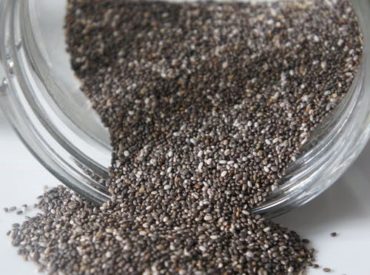Yes, food sensitivity can be a major reason why you have chronic annoying or inflammatory symptoms – things that keep you from feeling fantastic every day. Your chronic headaches, poor sleep, achy joints, tight muscles, malaise, irritability, extra body fat, low energy, depression – any or all of these might actually be caused by chronic inflammation that, in part, your immune system is generating in response to food(s) you unknowingly eat every day.
Food sensitivities (or delayed allergic reactions/IgG delayed hypersensitivity) are different from food allergies. When most people think of food allergies, they usually get an image of someone eating a peanut and ending up in the emergency room with a swollen tongue, hives, or the inability to breathe. That’s what is called an immediate allergy (also known as an IgE hypersensitivity reaction) which turns on an aggressive histamine reaction. These are very serious but also quite rare.
But there is a different type of food reaction that is much less dramatic and deadly. It is called a delayed allergy (or IgG delayed hypersensitivity). This reaction is much more common and creates suffering for millions of people. It is mostly ignored by conventional medicine. Nonetheless, IgG reactions play a huge role in many chronic illnesses and weight problems.
What are symptoms of a food sensitivity?
Delayed allergic reactions can cause symptoms anywhere from a few hours to a few days after ingestion. They also cause a wide range of problems like weight gain and retention, acid reflux, fluid retention, fatigue, brain fog, irritable bowel syndrome, heart palpitations, mood problems, sleeping problems, headaches, sinus and nasal congestion, joint pains, acne, arthritis, eczema, and more. These are all sources of inflammation. Specific symptoms vary widely. The body becomes inflamed because the immune system recognizes protein in an otherwise healthy food as a foreign invader.
What about online food sensitivities kits?
Sometimes people intuitively know their sensitivities. But because IgG reactions tend to be delayed, it can be hard to know what your immune system considers to be a threat. Total IgG panels will tell you your sensitivities, but these tests are also vulnerable to false positives (usually in the case of foods you have simply over-consumed). There are some test kits available online but they aren’t as thorough as those that you can get through a functional medicine practitioner. Honestly, there are multiple testing options but at the end of the day they all have pros and cons. The only true gold standard of testing is through 100% food elimination for 2-3 months followed by a reintroduction challenge. Here’s a great resource if you want to do a deeper dive into the elimination diet. https://wholelifenutrition.net/books/elimination-diet
If you have IgG food reactions, do you have to eliminate the food forever?
Typically not! Eliminating the food 100% cold-turkey for about two to three months can allow the immune system to “forget” about the sensitivity and tolerate it again. At the end of three months, simply reintroduce the food – having two normal-sized servings, twice a day, for three days in a row. Then pay careful attention to how you feel over those three days and two days beyond. If you continue to feel great with no inflammatory reactions, then you are good to go! And you can enjoy that food in your diet again a few times a week. If you experience inflammation (and the symptoms may be different from your original ones), it just means your immune system needs more time to calm down, and another four months elimination is recommended. Although you can do an elimination and reintroduction process yourself, some people choose to do it under the guidance of a functional medicine practitioner to ensure they’re doing it correctly and get the best results.
Why are food sensitivities so pervasive?
That’s a great question. It may be associated with the increase in genetically-modified, hyper-hybridized and chemically-altered foods that are readily available. These modified foods can look more like a foreign invader to our immune system than whole food. Ongoing intake of chemical medications, chemicals in our food, and highly-modified food promotes intestinal permeability (aka “leaky gut”) which causes the immune system to be over-exposed to our everyday foods. When the lining of your gut breaks down, food particles get underneath the barrier and trigger our immune system to recognize food (that particular food!) as a foreign invader. (For this reason, many people develop IgG sensitivities to the very foods they eat most often.) This immune response sets off a chain reaction leading to inflammation throughout your body. Your gut barrier can also be weakened by a nutrient-poor diet high in sugar and white flour and low in fiber, by nutritional deficiencies of zinc and omega-3 fats, by overuse of antibiotics, medications, and/or hormones, by exposure to environmental toxins, and by high levels of mental and emotional stress.
What foods are commonly associated with delayed allergic reactions?
While everyone is different, there are some foods that irritate the immune system more often than others. These are gluten (a protein found in grains including wheat, barley, rye, spelt, and kamut), dairy (e.g., milk, cheese, butter, yogurt), corn, eggs, soy, nuts, citrus fruits, refined sugar/sugar, nightshade vegetables (e.g., tomatoes, bell peppers, potatoes, eggplant), and yeast (e.g., baker’s yeast, brewer’s yeast, wine, vinegar, fermented products).
I learned about my gluten sensitivity through a comprehensive stool test (functional medicine specialty test which is different from stool tests you get from your physician). I was surprised by my results and decided to have food sensitivity testing done to determine if I had additional foods that my body couldn’t tolerate. I wanted to expedite this process which is why I’m not doing the elimination and reintroduction methods to identify food sensitivities. Results from this test to be posted soon.







